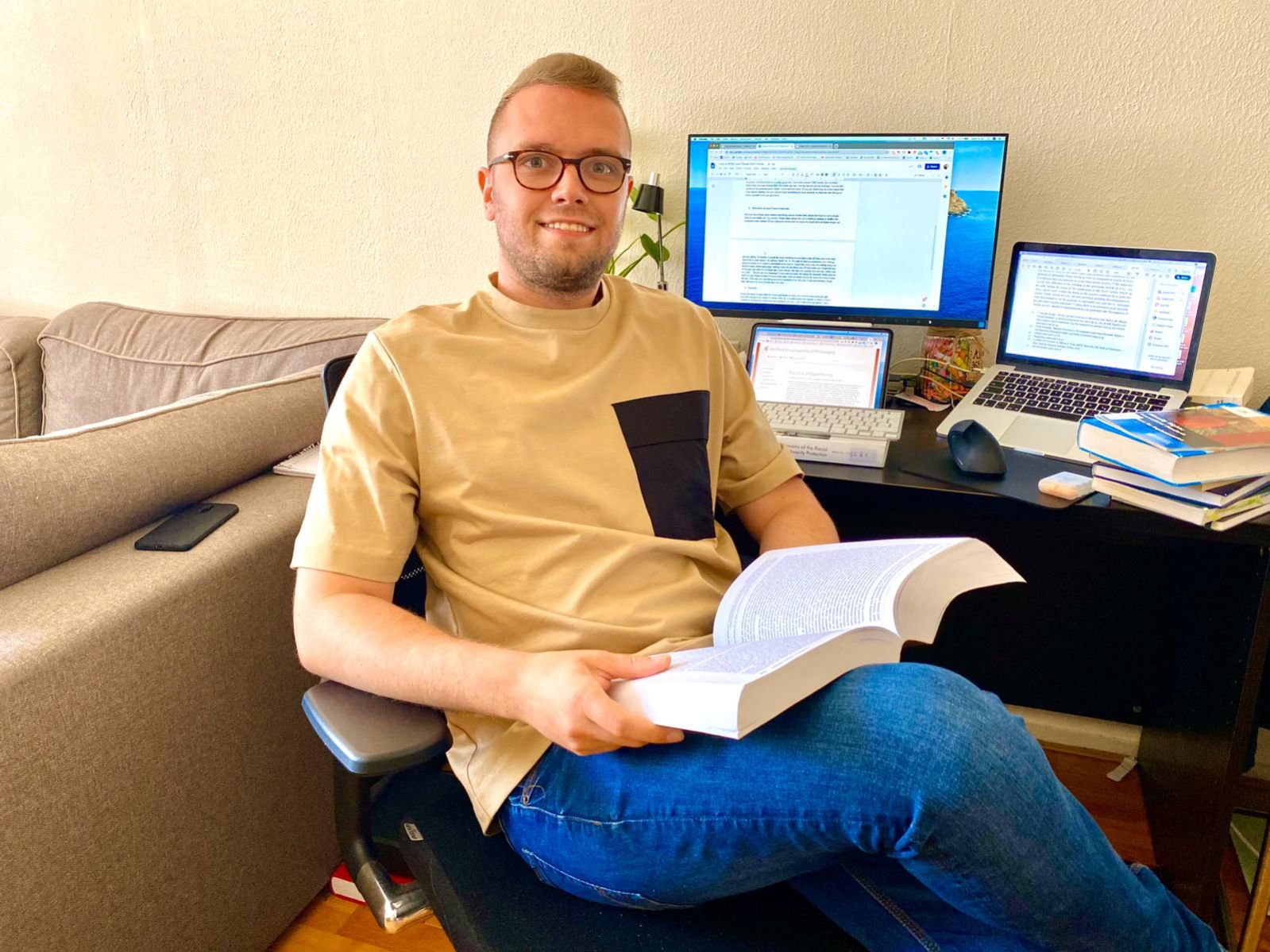Productivity Apps That Every Student Should Check Out
| Date: | 21 October 2020 |
| Author: | Asmo |

Technology is increasingly shaping the world we live in, including the way we study and learn. With the help of phones, tablets, and computers students are able to make their lives a lot easier when compared to thirty or forty years ago. In this blog, I want to introduce you to some of the applications that I have extensively used during my studies and which have really helped me boost my productivity in uni. However, instead of just throwing a list of apps out there, I have divided this blog into three categories: Note-taking, time management and studying. This way you can easily find the apps that fit your specific needs and wants as a student.
Note-taking
Note-taking is one of the most common and fundamental tasks encountered by every student, which is also why this section will be the longest one. While some still prefer the old school method of taking notes with pen and paper, most students can be seen taking notes on a tablet or notebook. Of course, you can use standard text apps such as Google Docs, MS Word or Pages, but there are also a few apps which are specifically catered towards note-taking and let you annotate PDF’s, websites and create individual notebooks. The best known by far is probably Evernote, which has been around for quite a bit and has proven to be very popular due to its various functions and cross-platform compatibility. Similarly, Microsoft OneNote and Google Keep are good options to look at.
If you are a Mac or iPad user, you might also want to have a look at Ulysses which comes with a sleek design and simple user interface. If you are taking notes specifically on an iPad, I would recommend you to check out Goodnotes and Notability as both give you a ton of options to take notes or integrate them into existing PDF files, while also offering great support for the Apple Pencil.
Finally, I have been using voice recorder apps which transcribe spoken word into written text on a number of occasions (lectures, meetings etc.). My personal favourite apps include Otter and Google’s ‘live transcribe’ app. Before using these to record though, make sure to ask your professor or fellow students for their permission!
Time management
Every student I know (including myself) sometimes struggles with keeping track of time. In between lectures, deadlines and other projects it is therefore important to keep a good overview of your schedule. To begin with, you should go to rooster.rug.nl and search for your lecture schedule there. Once you have found it make sure to download the schedule as a file in order to integrate into your existing calendar apps and programs.
The calendar app I rely on the most is Google Calendar. This is a pretty natural choice given that your student mail is linked to Google and features such as schedule sharing, google meet integration and cross-platform compatibility. However, this is not to say that there aren’t some other great calendar apps out there. Aside from Google Calendar, I often find myself using an app called Fantastical on my Mac and iOS devices. Fantastical is able to sync all your events with your Gmail account but also offers a great looking design and natural language input (i.e you can just type in ‘Meeting with John at 10 am next Monday’ to create an event).
In addition to using calendar apps to manage my time I constantly find myself doing to-do lists. My go-to app in this regard is Todoist, as it supports natural language input, syncs my tasks to my calendars and works across all platforms. Other good to-do list apps that are often recommended include Google Tasks, Microsoft To-Do as well as TickTick.
Studying
Now that we have covered the two most important categories, we can move on to the apps that can help you study more effectively. As I have already written about in previous blogs, I mainly use flashcards when studying. While I started out by writing physical flashcards I have increasingly transitioned to making digital ones, as they are super convenient to take with you when you are on the go when compared to a huge stack of paper cards. Moreover, it is easier to keep track of your progress when revising digitally. My favourite apps and programs for making and revising digital flashcards are Anki and Quizlet.
Another study technique I use to boost productivity is the ‘Pomodoro method’. When using this method, you divide your time into four concentrated 25-minute study sessions. In between each session, you take a 5-minute break and after four 25-minute sessions, you take a 20-30 minute break. For keeping track of the time I mainly just use a browser app called Pomdor but there are also plenty of apps such as Pomotodo which allow for more customisation. In order to ensure that I really don’t get distracted during my sessions, I use an app called Freedom to block certain apps and websites. Simultaneously I run the Forest app on my phone, which plants a ‘virtual tree’. As long as I do not touch my phone, the tree keeps growing which increases some motivation by adding a small game element.
Which apps do you use to keep yourself productive? Let us know in the comments below!
About the author


